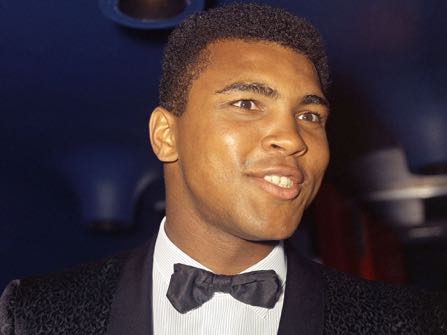Little Known Black History Fact: Muhammad Ali's Houston Conviction
Little Known Black History Fact: Muhammad Ali’s Supreme Court Case

The late Muhammad Ali will stand forever in the annals of history as the greatest boxer of his era, arguably of all time. But fifty years ago on June 20, a Houston court convicted the proud pugilist to five years of prison due to draft evasion.
Back in April of 1967, Ali was stripped of his boxing license and World Champion title for refusing to enter the U.S. Army during the Vietnam War. In 1964, Ali failed the U.S. Armed Forces qualifying test, but when the test was revised in 1966 it made the pugilist eligible for the draft.
At the time, Ali had fully embraced his Muslim faith and denounced the war, famously saying, “I ain’t go no quarrel with the Viet Cong.” Declaring himself a conscientious objector, Ali was criticized by the various boxing commissions not only for his refusal to enter the draft, but also for his ties with the Nation of Islam.
Seen as a talented but arrogant fighter, some alleged that clandestine forces rallied against Ali to see him fall, thus leading to his draft induction hearing in Houston. At the hearing, Ali refused to answer to the call of his name three times. He was warned that draft evasion was a crime and was arrested on the spot.
The World Boxing Association (WBA) stripped him of his title and the New York State Athletic Commission barred him from fighting in the state. Ali did not spend a day in jail, however, as his case stayed in appeals. But for nearly four years, he was not allowed to fight.
In his time away from the ring, he became a figure of the anti-war movement and lectured at colleges and universities across the country. Ali’s case made its way to the U.S. Supreme Court in 1971, which ruled in his favor allowing him his status as a conscientious objector.
The case, “Clay v. United States,” was Ali’s legal battle to gain conscientious objector status due to his religious and personal reasons for not joining America in the Vietnam War. Ali filed for the status in Louisville in 1966 but the draft board denied his application.
In just over two months, the all-male Supreme Court justices ruled unanimously in Ali’s favor that the government never fully explained why he was denied his objector status. Thurgood Marshall, the lone black justice, did not weigh in on the 8-0 decision because he served as the U.S. Solicitor General when Ali’s case opened in 1967.
Ali was able to resume his stellar boxing career in 1970, and went on to his legendary battles with Joe Frazier, George Foreman, and Leon Spinks.
In 2013, HBO released a film depicting the behind-the-scenes happenings of Ali’s case. Danny Glover starred in the role of Justice Marshall.
Like BlackAmericaWeb.com on Facebook. Follow us on Twitter and Instagram
Share your email below to receive our daily newsletter!
















